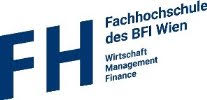Master Programme Quantitative Asset and Risk Management – University of Applied Sciences BFI Vienna
Vienna, Austria
Reviewed by ZeVa
- Valid from
- 01-02-2023
- Valid until
- 31-01-2028
Contact information
- Institution
- University of Applied Sciences BFI Vienna
- Website
- http://www.fh-vie.ac.at/
- Country
- Austria
Assessment report
0540 CeQuint ARIMA FinalExecutive Summary
The master programme in Quantitative Asset and Risk Management (ARIMA) was assessed by the expert panel on invitation by Central Evaluation and Accreditation Agency Hanover (ZEvA). ZEvA convened the panel which studied the self-evaluation report and undertook a site visit at the campus of the HEI in Vienna, the 22nd of June 2022. The procedure covered the three degree programmes “European Economy and Business Management” (B.A.), International Banking and Finance (M.A.) and ARIMA, which is the subject of this assessment report.
First, the panel would like to compliment the HEI and all staff for their strong commitment to further develop the international and intercultural dimensions of the programme. All elements supporting these dimensions are adequately to more than adequately addressed in the programme. The panel was able to convince itself that the international spirit is indeed lived and continuously reflected at the HEI in order to improve internationalisation.
The panel found that the programme has clear internationalisation goals which are adequately documented and well suited to a Master’s programme in Asset and Risk Management. The goals are widely shared and supported by stakeholders both within and outside the programme. The committee notes that the goals include measures which undoubtedly contribute to the quality of teaching and learning. The internationalisation goals are adequately operationalised in objectives which are verifiable to allow the monitoring of the achievement of these goals. The panel therefore assesses Standard 1. Intended internationalisation as good.
The panel deems all the underlying criteria of international and intercultural learning to be met. It is appreciated that the university has already taken the initiative to develop more sophisticated surveys to obtain further evidence on the extent to which the ILOs are achieved. It is evident that the University does not consider the ILOs merely as an add-on to traditional studies, but takes an integrated approach that includes many innovative approaches such as the “Intercultural Reflection and Action” and the “Cultural Intelligence Scale”. The Panel is convinced that the University will easily surpass this standard if it takes a more systematic approach to surveying graduates and evaluating them in the future. The panel therefore assesses Standard 2. International and intercultural learning as satisfactory.
The panel found that the content and the structure of the curriculum provide effective means for achieving its international and intercultural intended learning outcomes. In addition, the teaching methods are fitting and the learning environment provides suitable conditions for achieving the international and intercultural intended learning outcomes. The panel therefore assesses Standard 3: Teaching and Learning as good.
The panel found the staff composition, staff experiences, knowledge and skills and services provided for staff members to be very much in line with the international and intercultural dimensions of the programme. The panel found the programme to surpass the generic quality for this standard. The programme clearly goes beyond the acceptable level of attainment across the standard’s entire spectrum. The panel deems all the underlying criteria of this standard to be more than appropriately met. The panel found no shortcomings in any of the underlying criteria. To even further improve, the panel recommends to further diversify the composition of staff by integrating more people with foreign/intercultural backgrounds and to integrate the assessment of the appropriateness of staff’s international/intercultural sensitivity as part of student evaluations. The panel therefore assesses Standard 4: Staff as good.
The panel found the student composition and student experiences as well as the services provided to students to correspond strongly to the international and intercultural dimensions of the programme. The panel found the programme to surpass the generic quality for this standard. The programme clearly goes beyond the acceptable level of attainment across the standard’s entire spectrum. The panel deems all the underlying criteria of this standard to be more than appropriately met. The panel discussed whether this standard could already be considered excellent, but concluded that international and intercultural experiences could be focused on and strengthened a little more to serve as exemplary practice. The panel therefore assesses Standard 5: Students as good.
To conclude, ARIMA is a very mature international Master programme and the panel advises the European Consortium for Accreditation (ECA) to award the Master programme in Quantitative Asset and Risk Management (M.A.) of the University of Applied Sciences BFI Vienna (UAS BFI Vienna) the ECA Certificate for Quality in Programme Internationalisation.